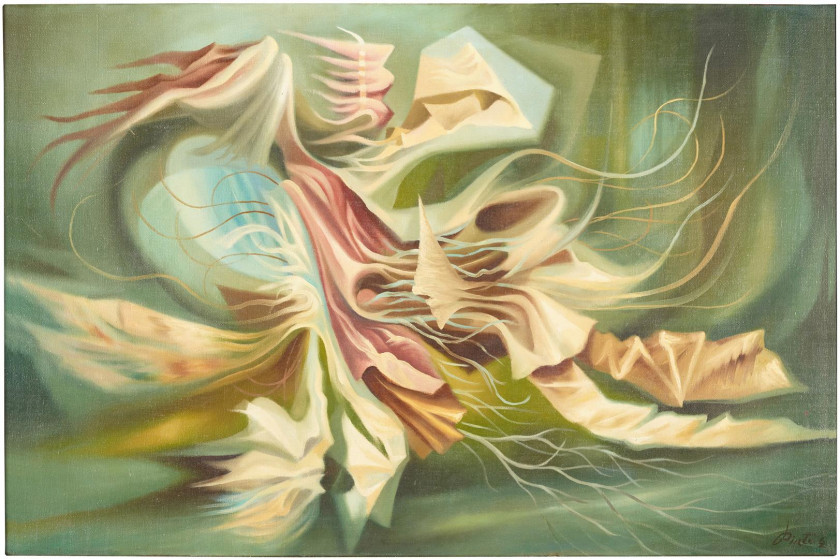Sem título [Untitled]
painting


1962
Oil on canvas
65 x 100 cm
Cândido Costa Pinto started his artistic career by working in caricature and graphic design. In the 1940s, he approached surrealism, an aesthetic that from then on, structured his production. In 1947, he joined the Lisbon Surrealist Group. However, a conflict he developed with peers in the artistic world contributed to his decision to emigrate to Brazil in 1962, where he remained until his death in 1977.
It was actually in 1962 that he painted this work. Having overcome an initial Dalinian inspiration, the author's surrealism is now expressed in compositions of abstract forms, moving away from any specific reference. On a background of blues and greys, creating an illusion of depth that could be described as aquatic, he creates organic and threadlike forms that suggest a movement in suspension. Using pinks, blues, ochres, and whites, he manages to modulate these abstract forms that seem to be in permanent re-arrangement, as if the painting captured only a moment of its choreography and transient structure. From a denser centre, the forms spread out to the sides of the composition, as if they were a tentacular structure. The surrealist liberation of rationality seems to assume in this work of Cândido Costa Pinto an iconoclastic dimension of pure abstract vision.
Luísa Cunha